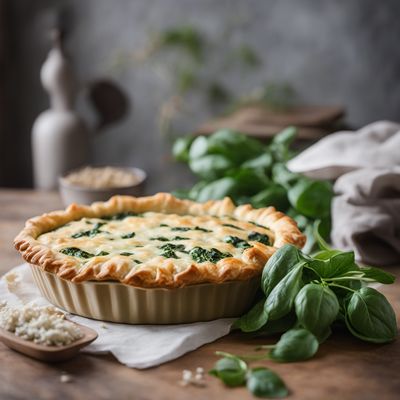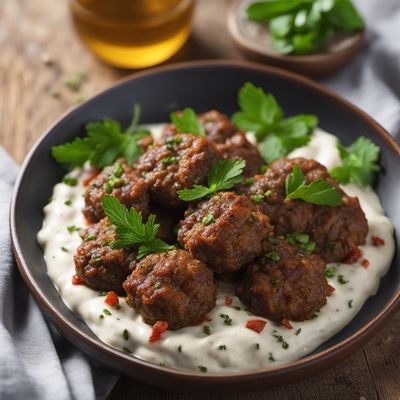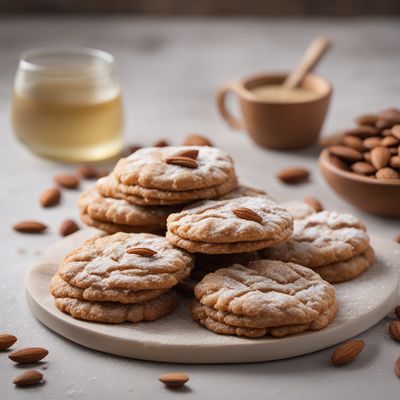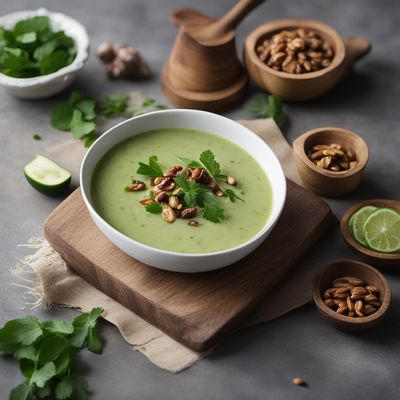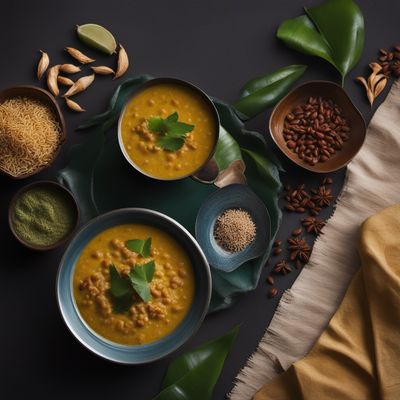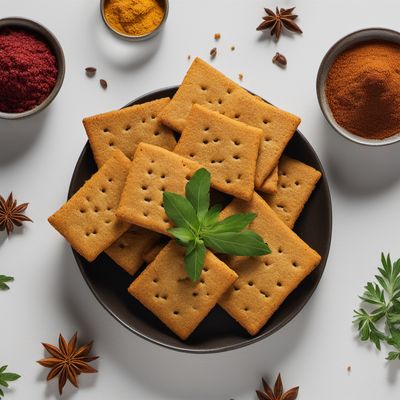
Recipe
Acehnese Flija
Layered Delight: Acehnese Flija Recipe
4.5 out of 5
Indulge in the flavors of Acehnese cuisine with this delightful recipe for Acehnese Flija. This traditional dish is a layered masterpiece, combining savory crepes with a rich meat filling, and topped with a creamy sauce.
Metadata
Preparation time
30 minutes
Cooking time
35 minutes
Total time
65 minutes
Yields
6 servings
Preparation difficulty
Medium
Suitable for
Halal, Gluten-free (if using gluten-free soy sauce), Dairy-free (if using dairy-free margarine), Nut-free, Low sugar
Allergens
Eggs, Soy (if using soy sauce)
Not suitable for
Vegan, Vegetarian, Paleo, Keto, Low-carb
Ingredients
In the original Albanian Flija, the crepes are made from a batter of wheat flour and water, while in the Acehnese adaptation, rice flour and coconut milk are used to give the crepes a distinct flavor. Additionally, the meat filling in Acehnese Flija is seasoned with Acehnese spices such as ginger, garlic, and turmeric, which adds a unique taste profile to the dish. The creamy sauce in the Acehnese version is made from coconut milk, eggs, and spices, providing a rich and velvety texture. We alse have the original recipe for Flija, so you can check it out.
-
For the crepes: For the crepes:
-
2 cups (240g) rice flour 2 cups (240g) rice flour
-
1 cup (240ml) coconut milk 1 cup (240ml) coconut milk
-
1 cup (240ml) water 1 cup (240ml) water
-
1/2 teaspoon salt 1/2 teaspoon salt
-
For the meat filling: For the meat filling:
-
1 pound (450g) minced beef or chicken 1 pound (450g) minced beef or chicken
-
2 cloves garlic, minced 2 cloves garlic, minced
-
1 teaspoon ginger, grated 1 teaspoon ginger, grated
-
1 teaspoon turmeric powder 1 teaspoon turmeric powder
-
1/2 teaspoon salt 1/2 teaspoon salt
-
1/4 teaspoon black pepper 1/4 teaspoon black pepper
-
For the creamy sauce: For the creamy sauce:
-
1 cup (240ml) coconut milk 1 cup (240ml) coconut milk
-
2 eggs 2 eggs
-
1/2 teaspoon turmeric powder 1/2 teaspoon turmeric powder
-
1/2 teaspoon coriander powder 1/2 teaspoon coriander powder
-
1/4 teaspoon cumin powder 1/4 teaspoon cumin powder
-
Salt to taste Salt to taste
Nutrition
- Calories (kcal / KJ): 420 kcal / 1760 KJ
- Fat (total, saturated): 22g, 16g
- Carbohydrates (total, sugars): 38g, 2g
- Protein: 20g
- Fiber: 2g
- Salt: 1.5g
Preparation
-
1.In a large bowl, whisk together the rice flour, coconut milk, water, and salt until smooth. Let the batter rest for 30 minutes.
-
2.In a skillet, cook the minced beef or chicken over medium heat until browned. Add the garlic, ginger, turmeric powder, salt, and black pepper. Cook for another 5 minutes until the meat is fully cooked. Set aside.
-
3.In a separate bowl, whisk together the coconut milk, eggs, turmeric powder, coriander powder, cumin powder, and salt until well combined. Set aside.
-
4.Heat a non-stick skillet over medium heat. Pour a ladleful of the crepe batter onto the skillet and swirl it around to form a thin crepe. Cook for about 1 minute until the edges start to crisp up. Flip the crepe and cook for another 30 seconds. Repeat with the remaining batter.
-
5.Preheat the oven to 180°C (350°F).
-
6.Place one crepe on the bottom of a baking dish. Spread a layer of the meat filling on top of the crepe. Repeat the process, alternating between crepes and meat filling, until all the crepes and meat filling are used.
-
7.Pour the creamy sauce over the layered crepes and meat filling, ensuring it covers the entire dish.
-
8.Bake in the preheated oven for 30-35 minutes until the top is golden brown and the sauce is set.
-
9.Remove from the oven and let it cool for a few minutes before serving.
-
10.Cut into squares or wedges and serve warm.
Treat your ingredients with care...
- Rice flour — Make sure to use fine rice flour for a smooth batter.
- Coconut milk — Use full-fat coconut milk for a rich and creamy texture.
- Turmeric powder — Add turmeric powder gradually to achieve the desired color and flavor.
- Minced beef or chicken — Choose lean meat for a healthier option.
- Eggs — Beat the eggs well to ensure a smooth and creamy sauce.
Tips & Tricks
- If you prefer a spicier flavor, add a pinch of chili powder to the meat filling.
- For a vegetarian version, replace the meat filling with a mixture of sautéed vegetables such as bell peppers, carrots, and mushrooms.
- Serve Acehnese Flija with a side of fresh cucumber and tomato salad for a refreshing contrast.
- Leftover Acehnese Flija can be refrigerated and reheated in the oven for a delicious next-day meal.
- Experiment with different spices and herbs to customize the flavor of the meat filling according to your preference.
Serving advice
Acehnese Flija is best served warm, straight from the oven. Cut it into squares or wedges and serve as a main dish. Garnish with fresh herbs such as cilantro or parsley for an added burst of freshness.
Presentation advice
To enhance the presentation of Acehnese Flija, sprinkle some toasted coconut flakes on top before serving. This adds a touch of texture and visual appeal to the dish.
More recipes...
For Albanian cuisine » Browse all
More Albanian cuisine dishes » Browse all
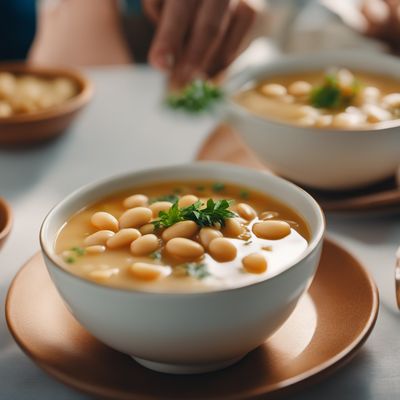
Jani me fasule
White bean soup
Jani me fasule is a traditional Albanian dish made with white beans and meat. It is a hearty and flavorful dish that is perfect for cold weather.

Baxin
Baxin is a traditional Chinese pastry that is often served during the Mid-Autumn Festival. These pastries are known for their flaky, buttery crust...

Granatir
Granatir is a traditional Russian drink that is made with pomegranate juice and soda water. It is a refreshing drink that is perfect for a hot summer day.

